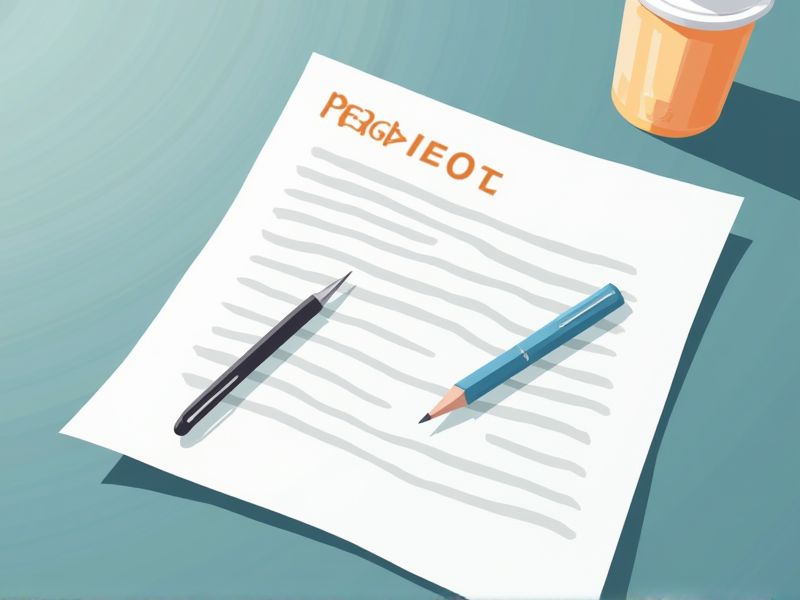
Pharmaceutical Production Technicians play a critical role in ensuring the safe and efficient manufacturing of medications, directly impacting patient health and industry standards. Certifications verify their knowledge and skill set, essential in maintaining compliance with regulatory requirements and maintaining product quality. These credentials demonstrate an understanding of Good Manufacturing Practices and specialized handling of sensitive materials. Some important certifications for a Pharmaceutical Production Technician include the Certified Pharmaceutical Industry Professional (CPIP) and OSHA safety training.
Good Manufacturing Practices (GMP) Certification
GMP certification ensures that a Pharmaceutical Production Technician adheres to strict quality control standards, reducing risks of contamination and errors in drug manufacturing. It provides a structured framework that enhances the safety and efficacy of pharmaceutical products, which is crucial in maintaining public health. Regulatory bodies often require GMP compliance for market access, meaning a technician with this certification can contribute to the company's ability to legally produce and distribute medications. GMP certification also bolsters consumer trust, as customers tend to have more confidence in products that meet industry standards for quality and safety.
Basic Pharmaceutical Production Technician Certification
The Basic Pharmaceutical Production Technician Certification ensures technicians have foundational knowledge of industry standards and regulations, reducing risks of non-compliance. Certification enhances productivity by equipping technicians with the skills to efficiently operate and maintain pharmaceutical manufacturing equipment. It serves as a standardized measure of competency, which helps employers ensure a consistent level of quality across their workforce. Earning this certification often contributes to increased job opportunities and career advancement, reflecting an individual's commitment to the high demands of the pharmaceutical sector.
OSHA Safety Certification
OSHA Safety Certification is needed for Pharmaceutical Production Technicians because it ensures they understand and adhere to workplace safety regulations, minimizing the risk of accidents and hazards. Compliance with OSHA standards helps maintain a safe working environment, reducing the chances of contamination in pharmaceutical products. Certification leads to a well-informed workforce capable of handling chemicals and equipment safely, protecting both the technicians and the end product. Pharmaceutical companies face potential legal and financial repercussions without certified personnel, highlighting the certification's importance in regulatory compliance.
Quality Assurance (QA) Certification
Quality Assurance certification ensures that pharmaceutical production technicians are well-versed in maintaining drug safety and efficacy standards. This certification verifies that technicians have the necessary skills to comply with regulatory requirements, reducing the risk of costly production errors. Certified technicians are better equipped to implement consistent quality control processes, leading to increased consumer trust. The certification process often covers current good manufacturing practices (cGMP), which are essential for meeting global industry benchmarks.
Hazard Analysis and Risk-Based Preventive Controls (HARPC) Certification
Pharmaceutical production involves complex processes where the risk of contamination or error can lead to significant health hazards. HARPC Certification equips technicians with the skills to identify potential risks in production and implement effective preventive measures, ensuring product safety. Compliance with HARPC standards aligns with regulatory requirements, reducing chances of costly recalls and legal issues. This certification fosters a culture of continuous improvement and accountability, enhancing overall productivity and reliability in pharmaceutical manufacturing.
Six Sigma Green Belt Certification
Pharmaceutical production technicians require Six Sigma Green Belt certification to enhance process efficiency, which directly reduces waste and increases production yields. The certification equips technicians with problem-solving tools, leading to improved product quality and compliance with stringent regulatory standards. With Green Belt skills, technicians contribute to reducing variability in pharmaceutical manufacturing processes, ensuring consistent product outcomes. Workforce capability improvement through the certification results in higher operational excellence and a competitive edge for pharmaceutical companies.
Lean Manufacturing Certification
Lean Manufacturing Certification enhances efficiency by teaching technicians how to minimize waste, crucial in tightly regulated environments like pharmaceuticals. Understanding these principles ensures strict adherence to quality and safety standards, reducing the risk of contamination or errors. This certification also fosters a culture of continuous improvement, which is vital for staying competitive in a rapidly evolving industry. As production processes become more complex, a Lean approach ensures technicians can handle challenges with greater agility and precision.
Pharmaceutical cGMP Auditing Certification
Achieving a Pharmaceutical cGMP Auditing Certification ensures that production technicians understand current Good Manufacturing Practices, which are essential for maintaining the quality and safety of pharmaceutical products. Without this certification, technicians might lack the detailed knowledge required to identify, address, and prevent potential compliance issues in the production process. The certification also supports career advancement by demonstrating the technician's expertise and commitment to industry standards. Companies benefit from having certified technicians as it minimizes risks associated with non-compliance, which can lead to costly recalls or legal penalties.
FDA Regulatory Compliance Certification
FDA regulatory compliance certification is crucial for pharmaceutical production technicians because it ensures adherence to safety and quality standards, which directly impacts patient health. Compliance certification enables technicians to identify and mitigate potential risks in the manufacturing process, resulting in more effective and safe drug products. The certification process equips technicians with knowledge of current Good Manufacturing Practices (cGMP), enhancing production efficiency and consistency. Without proper certification, technicians may inadvertently compromise the integrity of pharmaceutical products, leading to potential legal and financial consequences for the company.
Certified Quality Auditor (CQA) Certification
Gaining a Certified Quality Auditor (CQA) certification enhances a Pharmaceutical Production Technician's understanding of quality management systems, crucial for maintaining regulatory compliance. This certification empowers technicians to identify and rectify quality issues, minimizing the risk of product recalls and safeguarding patient safety. Organizations value CQA-certified professionals as they foster a culture of continuous improvement and cost management through waste reduction. The certification process equips technicians with the skills to effectively conduct audits, thereby increasing efficiency and reliability in pharmaceutical manufacturing processes.
Summary
As a Pharmaceutical Production Technician, obtaining certifications can lead to increased job opportunities and career advancement. Certifications often result in higher earning potential and recognition within the industry. These validations also enhance skills and knowledge, ensuring adherence to industry standards. Consequently, technicians become valuable assets to employers, contributing to more efficient and compliant production processes.
